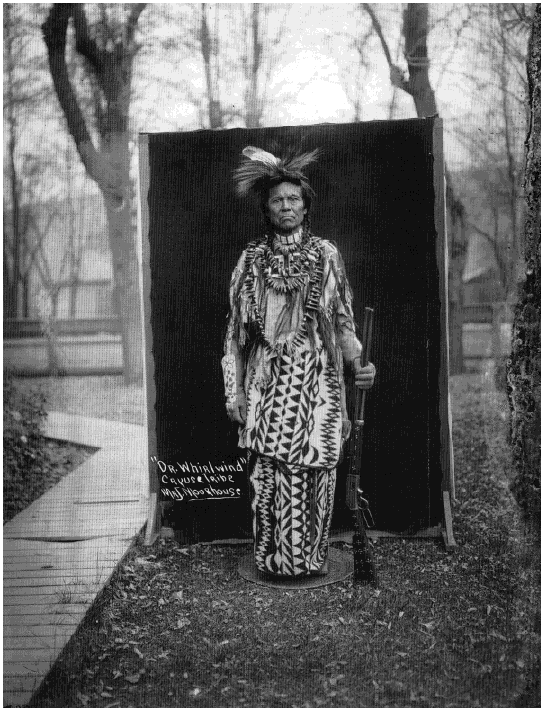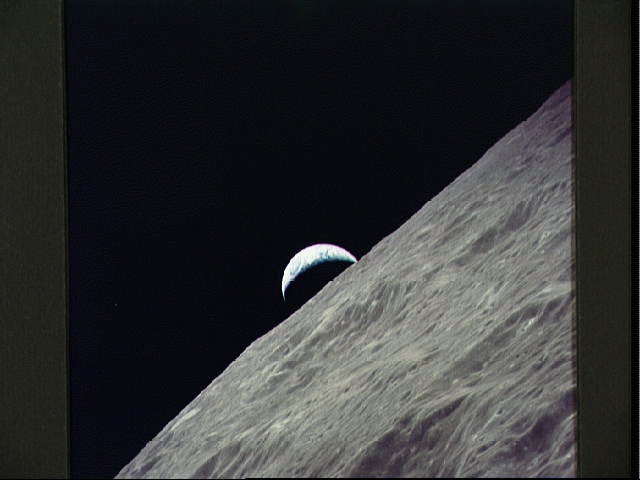
Peoples of the Plateau
The Indian Photographs of
Lee Moorhouse, 1898 - 1915
Steven L. Grafe
(University of Oklahoma Press)

Peoples of the Plateau came out almost five years ago, but we are so taken with it that we hasten to urge it on you, complete, as it is, with beautiful (if romantic) pictures of the southern Plateau Indians of the Columbia Basin and the Umatilla Indian Reservation (located around lower Walla Walla River, at the juncture of the Columbia and Snake Rivers). One photograph [above] shows "Dr. Whirlwind," complete with feathers, unsmiling face, lovely stitched blankets ... unsmiling shotgun, too.Especially beguiling are photographs taken at the Umatilla Indian School, the students complete in uniform and fedora, posing with rake in hand, as if they were in the fields already, being instructed on how to work the wheat and corn and oak crops, how to be hard-working slaves to the soil.
Revolution in Seattle
A Memoir
Harvey O'Connor
(Haymarket)Revolution in Seattle appeared in 1963, the handiwork of Harvey O'Connor, a real old-time radical: member of the IWW, former editor of the Farmer-Labor Call of Centralia, Washington. The prose rings with the pride of One Big Union, the Brotherhood of Cooperative Commonwealth, the battles of workers from so long ago, especially those who were part of the "Everett Massacre." Which all began, the author tells us, because of a strike by those who did the excruciating job of "shingle weaving."The singing blade rips 50 rough shingles off the block every minute, the sawyer must reach over to its teeth 50 times in 60 seconds ... Hour after hour the shingle weaver's hands and arms, plain, unarmored flesh and blood, are staked against the screeching steel that cares not what it severs.
The shingle workers went on strike to demand better working conditions. Five months after the strike started, on 5 November 1916, the Wobblies chartered a boat to go to Everett to support the workers, singing,
We meet today in Freedom's cause,
And we raise our voices high;
We'll join our hands in union strong,
To battle or to die.Hold the fort for we are coming,
Union men be strong.
Side by side we battle onward,
Victory will come!When their boat, the Verona, tried to land in Everett, the boat was met by gunfire. Sheriff Donald McRae had deputized 200 men: "The volleys from the dock continued until the Verona was out of range; the men struggling in the water then became the targets for the sharpshooters until they, too, disappeared." Between seven and fourteen died --- no one is exactly sure how many --- and almost fifty were wounded.
Black Glasses Like
Clark Kent
A GI's Secret from Postwar Japan
Teerese Svoboda
(Graywolf Press)We can't be too sure from this volume about what happened to Ms. Svoboda's uncle sixty years ago in a jail in Japan. He worked as an MP at the Eighth Army stockade. Something occurred that made him depressed in later years. Finally, when he killed himself, Svoboda launched a personal inquiry. She hunted down his old wartime buddies, went off to Japan to cover the ground where the prison was ... but found little or nothing. As her inquiry gets more serious, she seeks (and has trouble with) the U. S. Army. Things get misfiled; there are sketchy reports of GIs executed in the 720nd Military Police unit in Japan, but no one knows (or wants to say) exactly what happened. There were rumors of a scaffold, and problems with the "restless attitude of prisoners,"In November the inspector general still refers to an excess of sixty-two prisoners.
The existence of the gallows at the 8th Army Stockade went unrecorded, but turns up, like many other things here, vaguely, in this case, in one of the shadowy photographs.
In her research, Ms. Svoboda shows herself to be a bulldog, and in her pursuit, she discovers the reality of Japanese violence against Americans, well hidden by General MacArthur and the American press. Too, she tells about her thoughts on Post-Traumatic Stress Disorder of those who served in World War II --- the PTSD which we now know about, but which then was considered scandalous, never even hinted at in the heady days following that particular war, despite the drinking, the nightmares, the rage, the anti-social behavior ... and the ultimate madness of many WWII veterans.
She thinks that her uncle's suicide may have had something to do with a cook, there in the stockade, and an "Interlude" she puts early on in the book tells of an MP in "full-dress uniform" in a kind of dance with a black cook, "wearing an apron over khakis."
COOK: I love you too.
MP: No, really. You have to keep this secret for sixty years.
Apollo: Through the Eyes
Of the Astronauts
Robert Jacobs, et al, Editors
(Abrams)

They say that a quarter of the world watched the America astronaut step on the moon. The other three-quarters of the world were either without television, or too preoccupied with work or lack of money, or were put off by the whole thing. Me? I shudda stood in bed.The seventeen Apollo Missions cost America $145,000,000,000 (in 2008 dollars). They ran from 1961 - 1975. As D. M. Ashford reported in a recent TLS,
Apollo was not driven by military necessity or by the prospect of commercial gain. It was a political project. President Kennedy was far more interested in parrying the Soviet threat than in exploring the moon. He also wanted to demonstrate the benefits of large government programmes.
The Apollo moon landing was called "the greatest technological achievement in human history." Probably not. That doubtful honor should go to the Manhattan Project, the invention of the atomic bomb between 1942 - 1945, in which the U. S. Government put together the equivalent of a General Motors Corp. to build three squatty, little, and rather evil bombs. We are still living with the consequences of that turkey. Perhaps, like Harry Lime, we should give higher honors to the inventor of the cuckoo clock.
Those of us who were disinterested at the moon walk resisted the military ambiance of it all: burr-headed soldiers with their rigid little flags and their other-worldly machines, voices shorn of all human excitement ("A-OK"), locked mechanically in to what should have been the thrill of a lifetime. Why, we wondered, didn't they take someone interesting to the moon: a poet (Allen Ginsburg, Phillip Larkin); an artist (Ralph Steadman, Lucian Freud); a musician (John Cage, Dizzy Gillespie); a philosopher (Miguel de Unamuno, Roland Barthes, Jacques Derrida), or --- best --- a novelist (Norman Mailer, Philip Roth, Vladimir Nabokov)? We paid for it but felt no kinship with those frozen-face, stiff-backed military types.